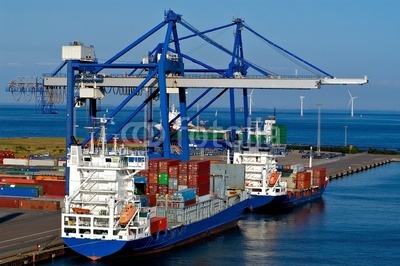INTRODUCTION
Trade and labor disputes usually arise from interaction between the organized labor and
Employers or government. The fiscal policies of government are crucial to formulating a legal
framework for regulating Union activities, Labor related issues and employment conditions
usually contribute to the balance of the framework. The role of trade unions in dispute resolution
cannot be overemphasized.
The resort to strike actions is the ultimate form of dissent to both government and employers. The
adverse effect of strikes to any economy talk less of a developing economy is staggering and
affects the socio-economic stability of the nation. Management of Trade and industrial disputes
has proved to be a difficult challenge with recurring strikes and lockouts. This challenge led to
the establishment of the National Industrial Court with jurisdiction to adjudicate on issues arising
from Trade disputes, industrial relations and laborshowdowns.
JURISDICTION IMBROLIGO
The National Industrial Court was established in 19761. The legislative arm of government made
provision for the National Industrial Court Act and Section 7(1) of the National Industrial Court
Act 2
provides that the court shall have an exercise jurisdiction in several courses and matters
relating to labor, including trade unions and industrial relations; environment and conditions of
work, health, safety and welfare of labor, and matters incidental there to; and relating to the
grant of any person or body from taking part in any strike, lock out or any industrial action,or any
conduct in contemplation or in furtherance of a strike, lockout or any industrial action;3
collective agreement, any circumstances relating to or seeking orders to restrain any personal
body from taking part in any strike, lock out or industrial action or any conduct in contemplation
or in furtherance of a strike, lockout or any industrial action; any question as to the interpretation
of any collective agreement; any award made by an arbitral tribunal in respect of a labor
dispute or an organizational dispute; the terms of settlement of any labor dispute, organizational
dispute as may be recorded in any memorandum of settlement and any award, or judgment of
the court.
Furthermore the court has jurisdiction and power to hear cases arising from labor,
trade dispute, employment matters and all other matters relating to trade activities.
Its operational mechanics provide that the President of the court may appoint a single judge to
sit and determine interlocutory applications or preliminary matters5 in any other cases before the
court and also in substantive terms, the sitting panel of judges to hear any of its cases must
comprise no less than three judges.
To engender its growth and spread, the President of the court is also empowered to create
judicial relations so that the statutory functions of the court may be administered more
effectively. In consequence of this power, the court now has judicial divisions sitting in Lagos,
Calabar, Kano, Enugu, Ibadan, Maiduguri and Abuja.
To regulate its day to day conduct, the president of the court is also empowered to make rules
of court to give effect to the statutory obligations imposed by the various regulating legislation.7
The NIC has done very well thus far but the status of the court as a superior court of record
which hitherto has been the subject of criticism and backlash has finally been settled by the
provisions of the amended constitution.
Before now, section 6(5) of the 1999 Constitution provides the list of superior courts of records in
Nigeria with the exception of the NIC. This lacuna had an adverse effect on the jurisdiction of
the NIC and created room for a lot of confusion as to the status of the court. The court of
Appeal in its wisdom interpreted the provisions of section 272 of the 1999 Constitution to the
effect that the NIC had concurrent jurisdiction with Federal and State High Court.
The challenges and constraint the NIC has faced have been enormous. It is a court that has
suffered non acceptability from even legal practitioners owing to non definitive roles and status.
But for the aggressiveness and outcry at various foray of its current President, its status might still
have remained in imbroglio. The National Assembly finally amended the provisions of the
constitution to accommodate the NIC has a superior court of record with clearly defined roles
and functions.
Flowing from the above, Section 243(c) now has sub-paragraphs ‘(2)&(4)’ inserted and provide
as follows:
(2) An appeal shall lie from the decision of the National industrial court as of right to the
court of Appeal on questions of fundamental human rights as contained in Chapter IV of
this constitution as it relates to matters upon which the National industrial court has
jurisdiction.
The provision of sub (2) above clearly confers on the NIC issues and questions that may arise out
of chapter IV of the constitution that relates with matters upon which the NIC has jurisdiction.
It is instructive to note that Sub (4) provides that the decision of the court of Appeal in any
matter arising from the civil jurisdiction of the NIC shall be final, this is provided for in the Constitution (Third alteration) Act, 2010 with a commencement date of 4th March 2011. An
alteration was carried outto accommodate the NIC as superior court of record. Another area of particular concern which has caused so much confusion is the jurisdiction of
NIC which has now been clearly defined by section 254 c (1) which states;
254c-(1) Notwithstanding the provisions of sections 251, 257, 272 and anything contained
in this constitution and in addition to such other jurisdiction as may be conferred upon it
addition to such other jurisdiction as may be conferred upon it by an act of the National
Assembly, the National Industrial Court shall have and exercise jurisdiction to the
exclusion of any other court in civil causes and matters-
(a) Relating to or connected with any labor, employment, trade unions, industrial
relations and matters arising from work place, the conditions of service including
health, safety and welfare of labor employee, worker and matters incidental
thereto or connected therewith;
(b) Relating to connecting with or arising from factories Act, Trade Disputes Act,
Trade Unions Act, Labor Act, Employees Compensation Act, or any other Act or
law relating to Labor, employment, industrial relations, workplace or any other
enactment replacing the Acts or Laws.
(c) Relating to or connected with the grant of any order restraining any person or
body from taking part in any strike, lockout or any industrial action or any
conduct in contemplation or in furtherance of a strike ,lockout or any industrial
action and matters connected therewith or related thereto.
(d) Relating to connected with any dispute over the interpretation and application
of the provisions of chapter iv of this constitution as it relates to any employment,
labour, industrial relations. Trade unionism, employers association or any other
matter which the court has jurisdiction to hear and determine;
(e) Relating to or connected with any dispute arising from national minimum wage
for the federation or matters connected therewith or arising there from;
(f) Relating to or connected with unfair labor practice or international best practices
in labor, employment and industrial relations ,matters;
(g) Relating to or connected with any dispute arising from discrimination or sexual
harassment at work place;
(h) Relating to connected with or pertaining to the application or interpretation of
international laborstandards;
(i) Connected with or related to child labor, child abuse human trafficking or any
matter connected therewith or related thereto;
(j) Relating to the determination of any question as to the interpretation and
application of any –
(i) Collective agreement
(ii) Award or order made by an arbitral tribunal in respect of a trade dispute
or a trade union dispute(iii) Award or judgment of court
(iv) Term of settlement of any trade dispute
(v) Trade union dispute or employment dispute as may be recorded in a
memorandum of settlement
(vi) Trade union constitution, the constitution of an association of employers or
any association relating to employment, labor, industrial relations or work
place;
(vii) Dispute relating to or connected with disputes arising from payment of
wages, salaries, pensions, gratuities, allowances, benefits, and any other
entitlement of any employee, worker, political or public office holder,
judicial officer or any civil or public servant in any part of the federation
and matters incidental thereto:
(1) Relating to –
(i) Appeals from the decisions of the registrar of trade unions or matters
relating thereto or connected therewith;
(ii) Appeals from the decisions or recommendations of any
administrative body or commission of enquiry, arising from or
connected with employment, labor, trade unions or industrial relations;
and
(iii) Such other jurisdiction, civil or criminal and whether to the exclusion of
any other court or not as may be conferred upon it by an act of the
national assembly;
(m) relating to or connected with the registration of collective agreements
(2) Notwithstanding anything to the contrary in this constitution, the National
Industrial court shall have the jurisdiction and power to deal with any matter
connected therewith.
The foregoing highlights the jurisdiction of the NIC which clearly covers all matters connected
and incidental to labor law, Trade disputes and industrial relations. It is also instructive to note
that Section 254 (c) grants exclusive jurisdiction to the NIC on labor, trade dispute and other
ancillary matters that may arise out of same which hitherto had been within the confines of
concurrent jurisdiction of the State high courts and Federal high court at first instance.
Furthermore Appeals from the criminal causes or matters that arise from any cause or matter of
which jurisdiction is conferred on the National industrial court shall lie as of right to the court of
Appeal and 10th decision of a court of Appeal on issues that arise from any civil jurisdiction of
the National industrial court shall be final.
The alteration of the constitution to accommodate the NIC is commendable though long
overdue. This is an area of law that is clearly specialized and designed to maximize effective
dispute resolution in labor, Trade dispute and industrial relations matter and will lead to further
decongestion of courts and introduction of specialized judges and the recognition of the court
has a superior court of record with similar powers to that of a High court. This cloaks the NIC with
the much needed status it truly deserves with Constitutional backing as the court of first instance
in labor, Trade dispute and industrial relation matters.
Dayo Adu
Associate
Bloomfield- Advocates & Solicitors
200 Muritala Mohammed Road,
Yaba, Lagos,
Nigeria
Email:dayo.adu@bloomfield-law.com
Phone: +234 1 738 8369, +234 791 0702
Mobile: +234 8062 80 1020


